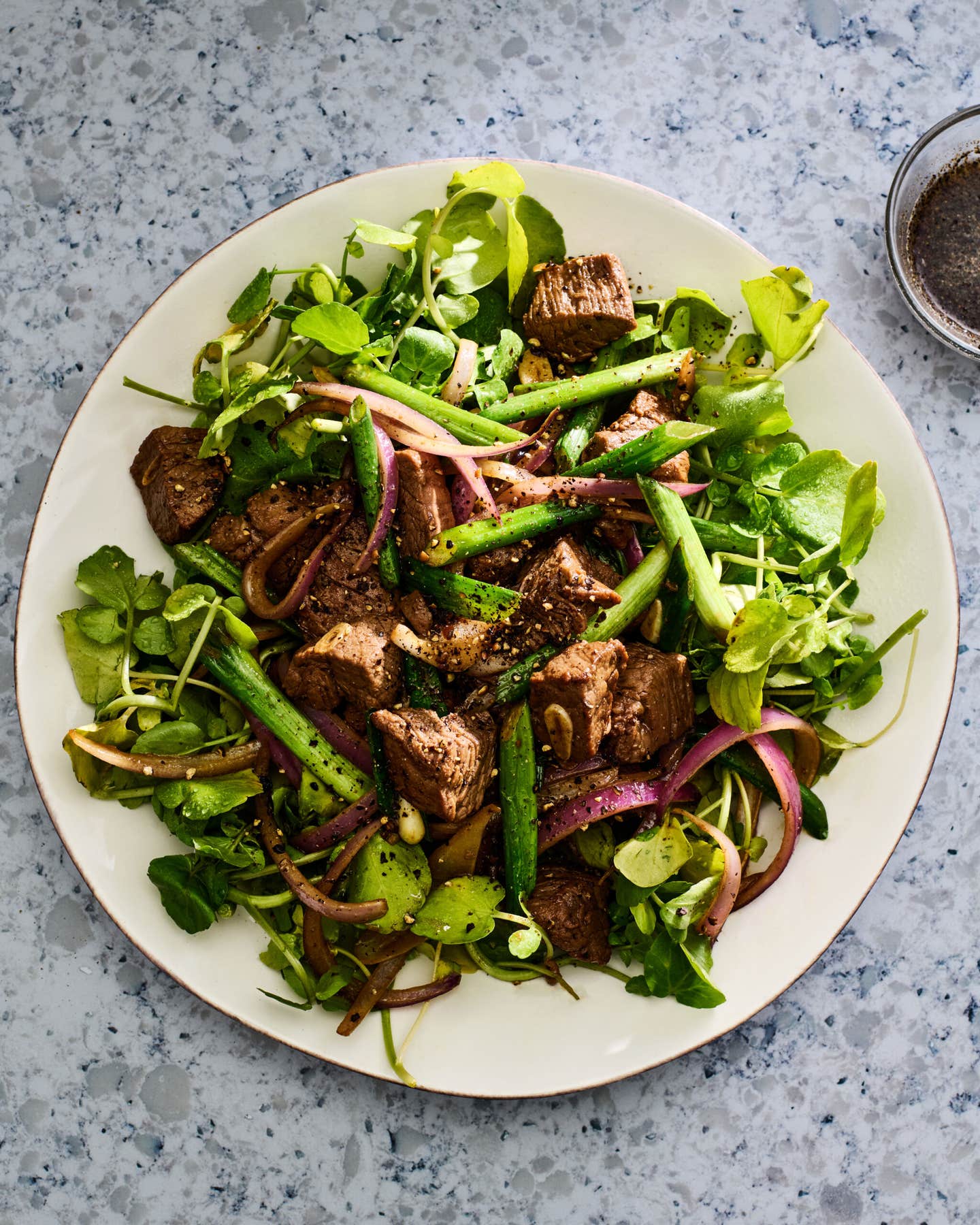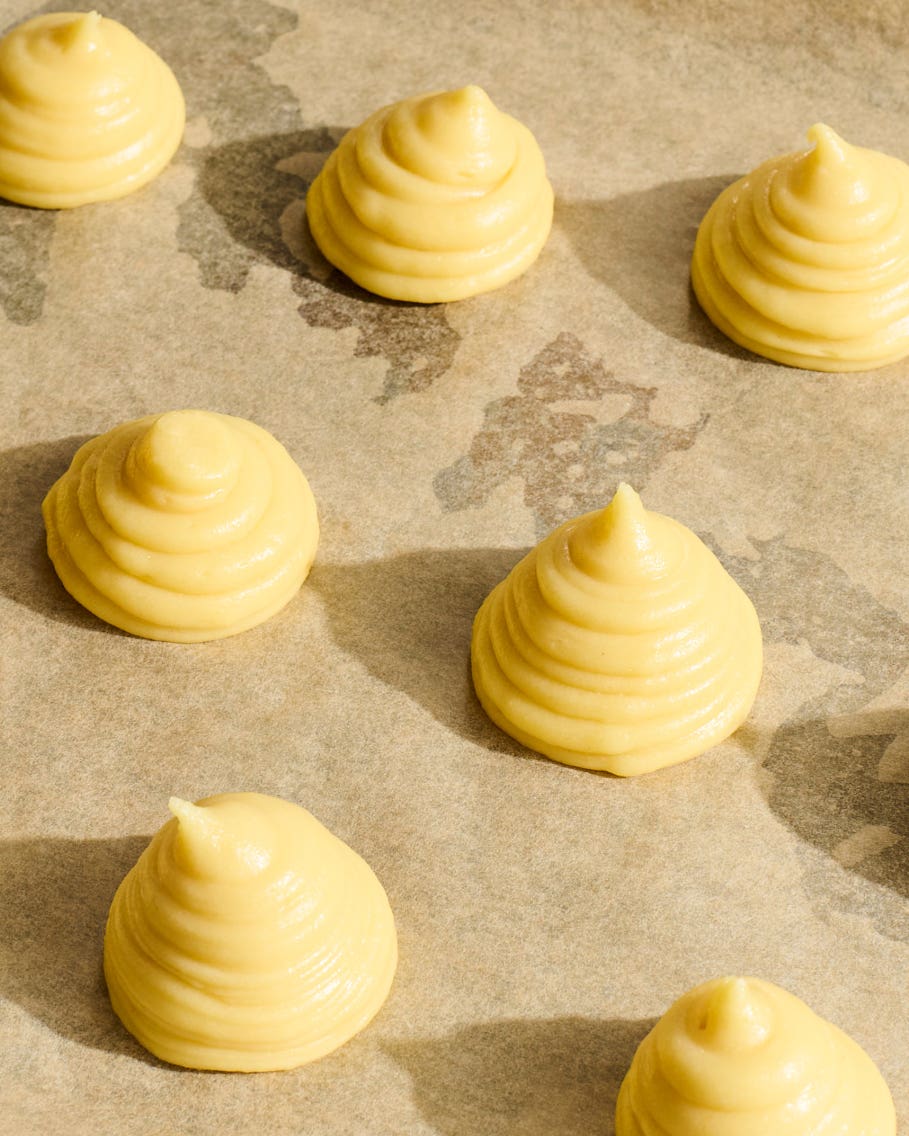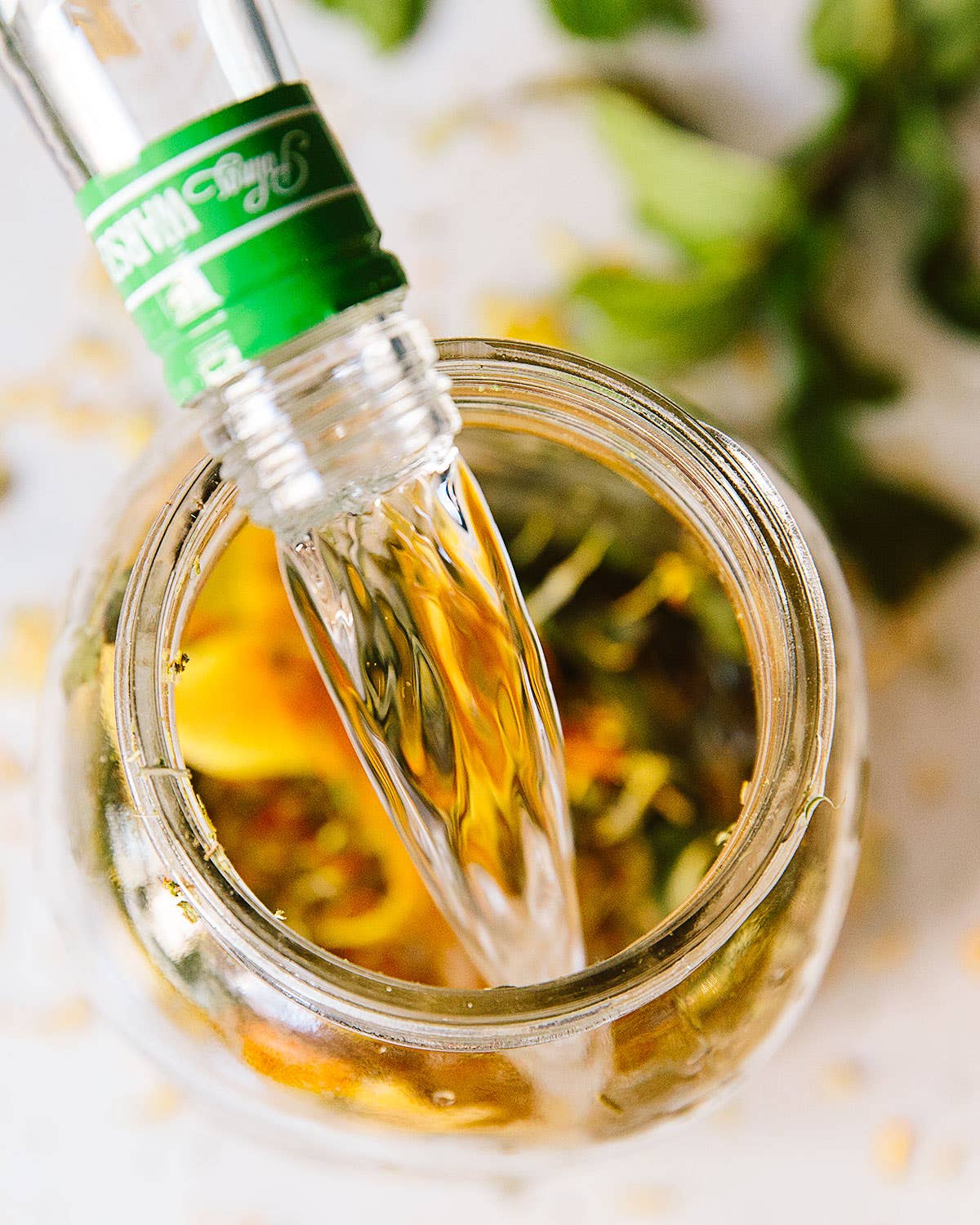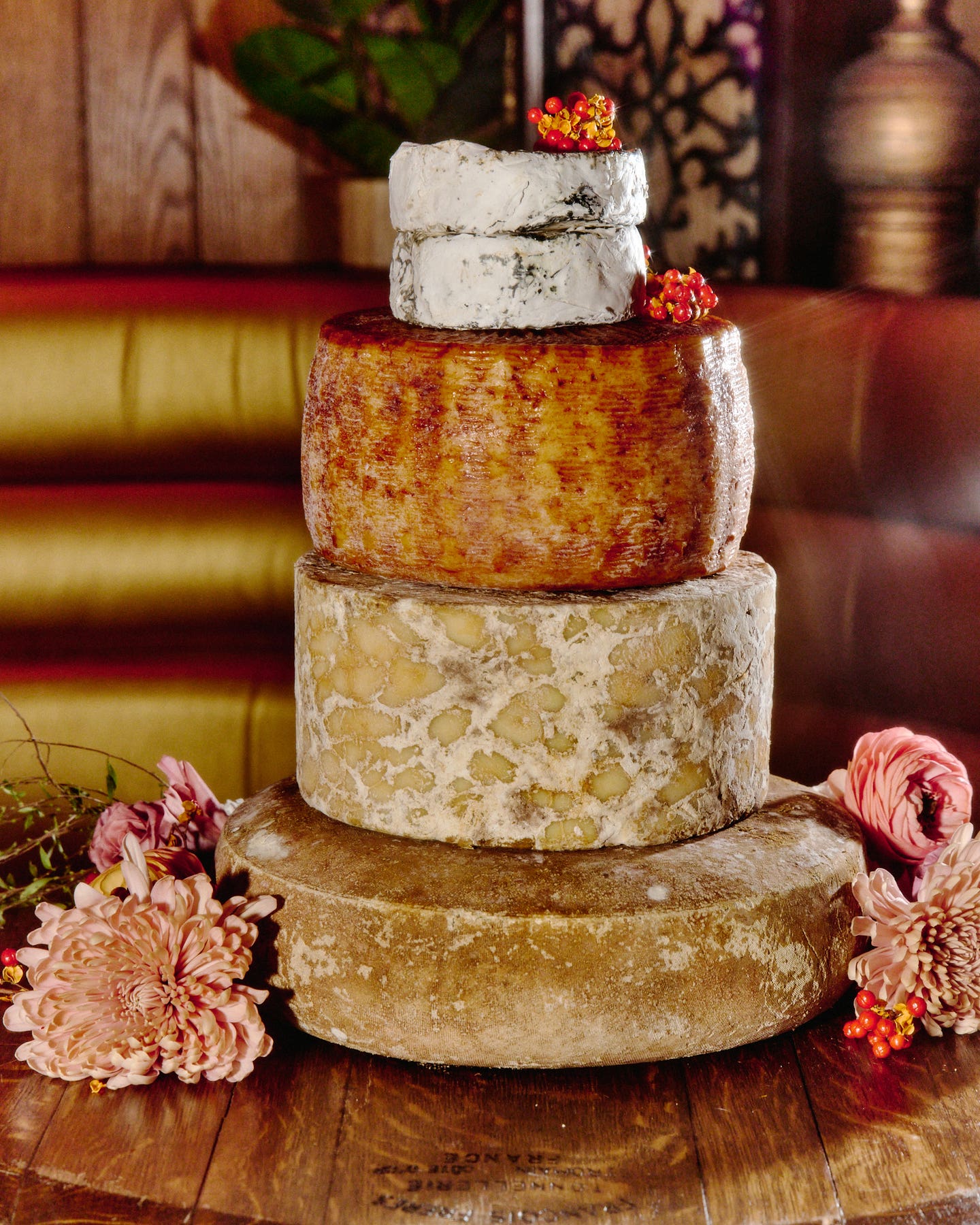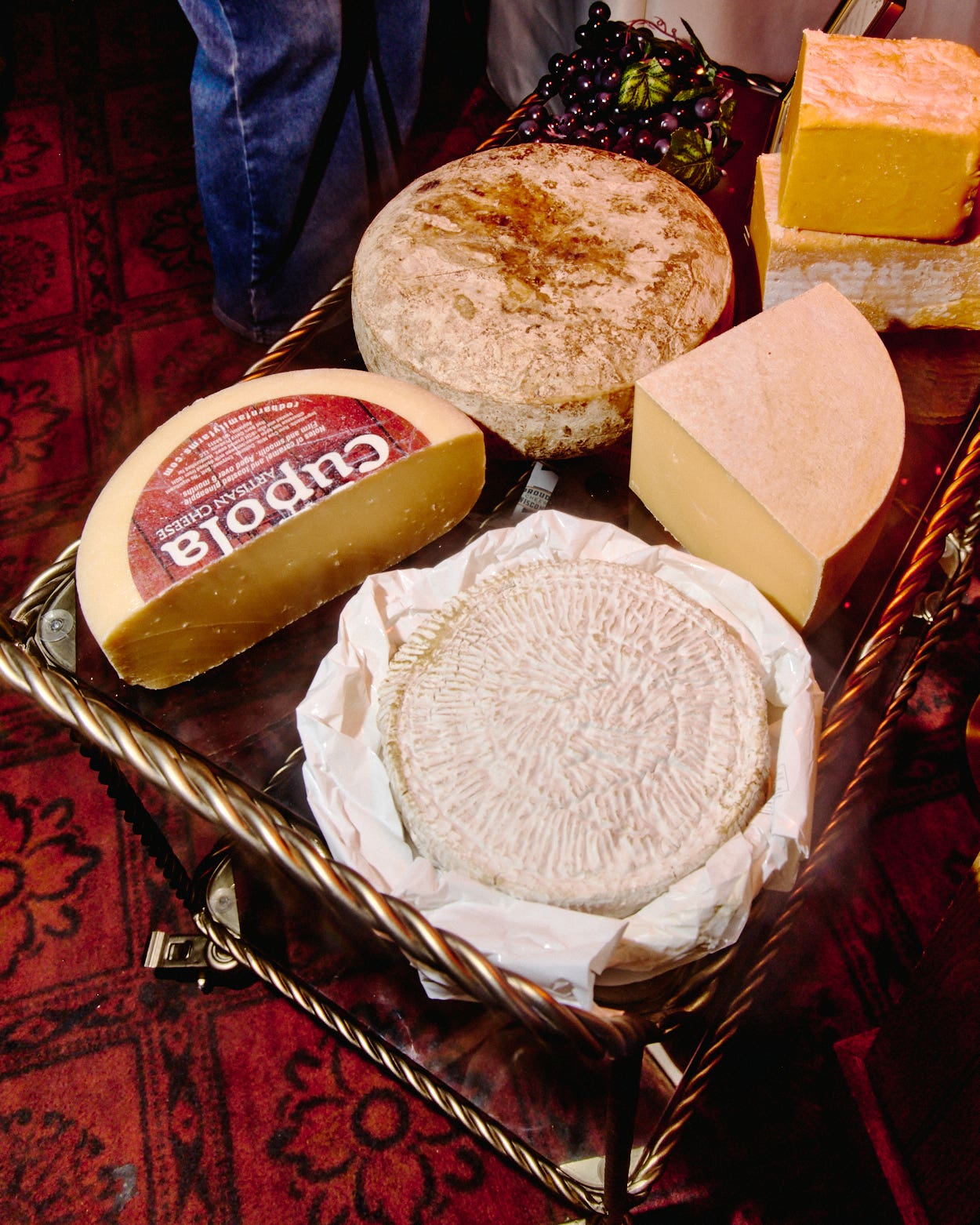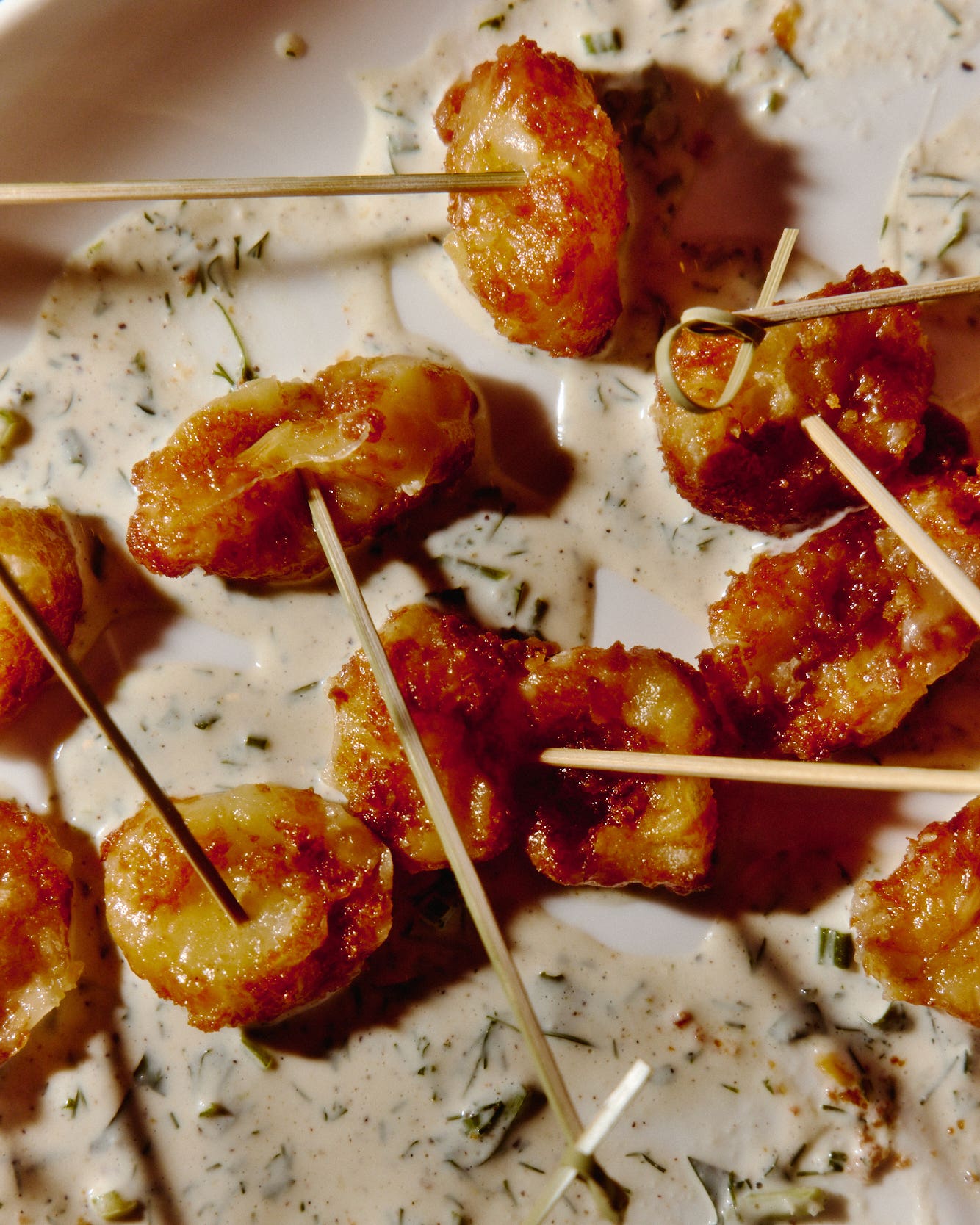
Honored Herb
Steeped in centuries of symbolism and tradition, rosemary is a hardy, aromatic, intensely flavorful evergreen, virtually impossible to forget
Until I went to college, the only herb I was at all familiar with was the kind passed around at parties. True, mint and chives grew in our backyard, but they had little place in my Japanese mother's repertoire of Asian dishes, much less in the herbless all-American fare—like turkey casserole, mashed potatoes, and pot roast—she cooked for my finicky father's sake. Thanks in part to Simon and Garfunkel, I had at least heard of parsley, sage, rosemary, and thyme; I'd just never realized the effect they were capable of inducing.
Then, one night during my junior year, I had an epiphany at a small Chez Panisse-inspired restaurant outside Philadelphia. My new boyfriend's charming and earnest company already had me a bit high, but it was the roast chicken we were sharing that really made my head spin. Now, I had grown up eating chicken almost every Monday of my life (routine was big in my family), but this was a different bird altogether, perfumed and flavored with garlic and lemon and something unmistakably piney, woodsy, gutsy, almost primal. "Wow, what is that?" I finally asked after repeated tastes and sniffs (inhaling seemed harmless in this case). "Rosemary—it's awesome, isn't it!" my date replied with a crooked grin. And I knew then and there that I was hooked, on both the herb and the guy.
It thus came as no surprise when I later learned that rosemary (Rosmarinus officinalis), the herb of remembrance, has been associated with love since medieval times. For centuries in Europe, maids of honor carried it at weddings, and branches were dipped into wine goblets during toasts to the bride. Additionally, it was believed that a woman who laid the herb under her pillow would dream about her future husband. Of course, its association with remembrance also meant that rosemary was linked to death. Romans placed branches of it in the hands of the dead, and it became customary in Europe and Asia to plant the herb at grave sites.
Rosemary, whose Latin name, rosmarinus, means dew of the sea (the evergreen shrub is native to the Mediterranean), served other nonculinary purposes as well: Greek scholars wore garlands of it to help stimulate their minds, and Spencer referred to the herb as "cheerful rosemarie" because it supposedly improved one's mood. Rosemary has also been credited with everything from warding off evil spirits and preventing nightmares and baldness to relieving headaches, repelling moths, and reducing flatulence. It's often found in perfumes and soaps, too.
By most accounts, people began cooking with rosemary in the early Middle Ages; it was especially popular with the European nobility. These days, the herb is a particular favorite of the Italians, who use it in both savory and sweet dishes, and if the French, especially in Provence, where a rosemary tisane to aid digestion often ends a large meal. And although I've flirted with all kinds of herbs since that magical night over a decade ago, my own heart still belongs to rosemary. Why? Long after its cousins start to wilt and fade in the refrigerator, rosemary holds its own, ready to be stuffed into the cavity of a chicken, tied around loins of pork or veal, or dipped as a bunch in olive oil for brushing onto fish. I never tire of stripping the long, sturdy stems of their gray-green, leathery, needlelike leaves in one swift motion (try that with oh-so-delicate tarragon, or even thyme), sending forth a clean, wintery scent and leaving a slightly sticky, aromatic resin on my fingertips. I use the resulting bare stems as skewers for fish, meat, or vegetables or throw them onto burning charcoal to help flavor whatever I am grilling. As for the leaves, after crushing or chopping them to release their bold flavor, I toss them with new potatoes and olive oil before roasting; make a crust with bread crumbs for lamb that's been smeared with dijon mustard; even add them to orange slices marinated in red wine.
Apart from its versatility and unique smell and taste, one of the best things about rosemary is that, in contrast to so many other herbs, it's almost as good dried as it is fresh—which means you can always have it on hand. But while I'm creative with rosemary, I've also learned to be judicious: a little goes a long way, and its pungency can easily overwhelm a dish. All in all, rosemary and I have settled into a very happy relationship. And the guy? We lost touch ages ago.
Keep Reading
Continue to Next Story
